From Wednesday 12 June 2024 until Friday 14 June 2024, Irish Penal Reform Trust Children and Families Project Coordinator Ashling Tobin travelled to Berlin, Germany to attend the Children of Prisoners Europe (COPE) annual international conference. The conference was titled ‘Let’s Talk to One Another: a cross-sectoral approach for children with a parent in prison‘. Together, attendees explored comprehensive support systems across sectors for children with an imprisoned parent.
The conference revolved around the need for cross-sectoral, holistic support to safeguard the rights and needs of children with a parent in prison, also referred to as a ‘one-roof approach’.
The event operated under the idea that to better meet the needs and rights of children with an imprisoned parent, it is essential to adopt an integrative approach that encompasses all circles of the child’s environment. This includes both the micro-environment (family, community, school) and the macro-environment (child rights defenders, decision makers, policymakers, public and executive authorities, judicial bodies, general public, media). By joining hands, stakeholder groups can create more sustainable support solutions for children and families and identify and eliminate system gaps, promoting child safeguarding at all times.
Below is an overview of some of the key points from the event.
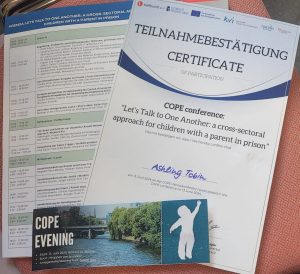
Day 1: COPE General Assembly
Prior to the conference members of the COPE network were invited to COPE’s general assembly, opened by Maragret Tuite, COPE President. Margaret provided those with COPE’s status report; minutes from the General Assembly 2023 (Limerick, Ireland); the president’s report; report of Children of Prisoners Europe’s overall objectives for the period from the year 2023.
It was noted that every year, in addition to the International Conference, COPE’s members come together for an internal networking event known as the COPE Forum. This year’s COPE Forum was focused on equality and non-discrimination, principally considering the significance of gender concerning support for children impacted by a parent’s imprisonment. It centred around the following questions:
- What do gender-sensitive supports for children and imprisoned parents look like?
- How are prison-based practices and perceptions that influence the lives of imprisoned mothers and fathers gendered?
The Forum considered how gender overlaps and intersects with other grounds of discrimination (e.g., ethnicity, income level), paying particular attention to the experiences and needs of Roma and Traveller families experiencing a parent’s imprisonment. Prison and schools-based initiatives in Ireland and Croatia working from these perspectives featured in the Forum discussions to include a presentation by the Traveller Movement and Exchange House in Limerick.
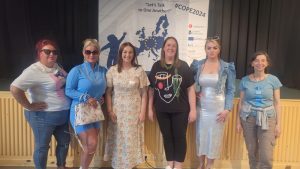
Day 2: Conference
The Children of Prisoners Europe’s (COPE) International Conference 2024 “Let’s talk to one another: a cross-sectoral approach for children with a parent in prison” hosted by Treffpumkt e.V. took place in Festsaol der Berliner Stadtmission, Berlin on 13 June 2024.
The conference highlighted novel and creative approaches to working collaboratively to protect the rights of a child with a parent in prison. Presentations cover topics such as:
- The experience of international standards to practice.
- The European perspective on implementing the Council of Europe recommendation and EuroPris expert group.
- The establishment of the ‘children of prisoners’ field of action at the Auridis Foundation. This initiative focuses on bringing about systemic changes in the cooperation between youth welfare and the justice system.
- The development of the first father-child group in Berlin and the subsequent development of a concept for the low threshold counselling service for families affected by imprisonment. This concept has since been integrated into all of Berlin’s male prisoners.
- The development of the UK’s first programme that recognises and supports children impacted by parental imprisonment through innovative use of shared statutory data. The presented believed that children should be supported to succeed on their own merits and not be hindered by their circumstances or the actions of the adults in their lives.
- Publications that address topics such as justice access for children with disabilities, the psychological impact of prison, and the importance of maintaining family ties for the reintegration of prisoners. As well as the initiative called ‘Our Big House’, a support centre for young children and their parents.
- Experience of a second judge at the Supreme Court of Justice, in alternative dispute resolution, adoption, juvenile delinquency, and judging with a gender perspective, and work in several child protection and human rights education initiatives.
- Instrumental advocacy for children in situations of vulnerability and collaborating with government officials across various levels to enhance child protection mechanisms.
- The importance of ensuring child and youth participation and how their stories matter from someone with lived experience of having a parent in prison.
- The development and implementation of projects related to parenthood in detention and has developed the training ‘My child and I’ which is being organised in almost all prisons in the Netherlands, as well as the autumn camp for kids and their parents’ prison. Central to these programs is the recovery of the relationships between the child and the imprisoned parent.
If you would like more details about these presentations, please contact Ashling on atobin@iprt.ie.
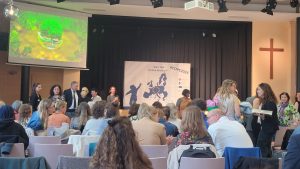
Day 3: The Networking Corner
Friday began with an informal networking event provided an opportunity for members to exchange on new perspectives and initiatives from across the network. There was also a presentation of Game with Mum & Dad, COPE’s football-based awareness-raising campaign.
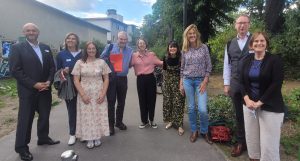
________________________________________________
Irish Penal Reform Trust is a member of the Children of Prisoners Europe Network. You can read more about our previous work with COPE:
- Children of Prisoners Europe: How can we make prison spaces more child-friendly for children visiting a parent? (June 2024)
- Children of Prisoners Europe’s (COPE) International Conference 2023: “Reconnecting through Learning and Play” (June 2023)
- IPRT become members of Children of Prisoners Europe (COPE) Network (June 2023)
- Meeting with Children of Prisoners Europe (COPE) (February 2023)
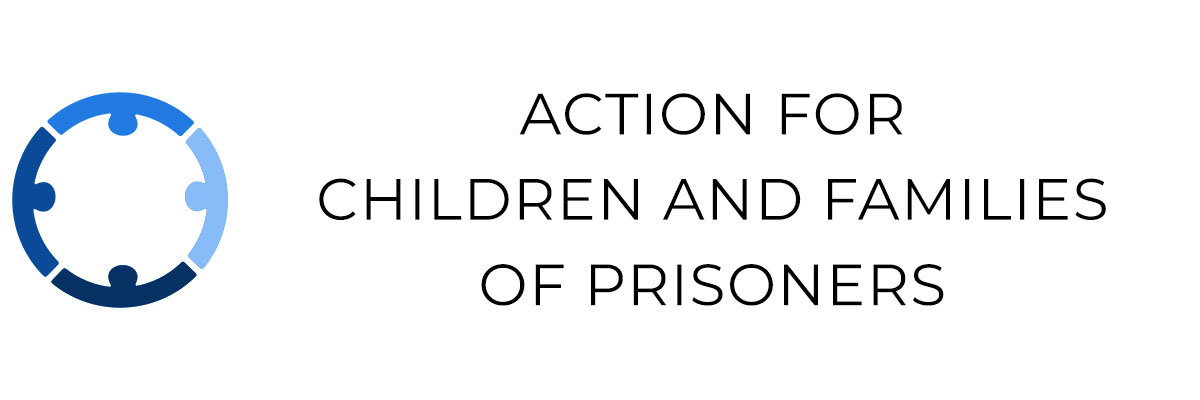
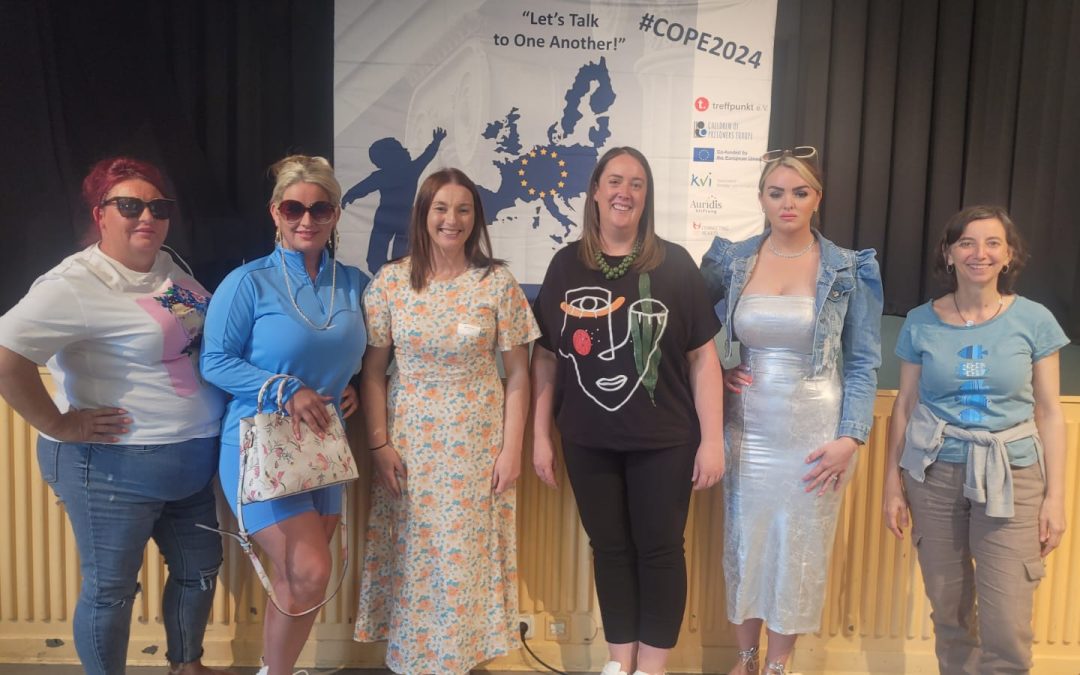
Recent Comments